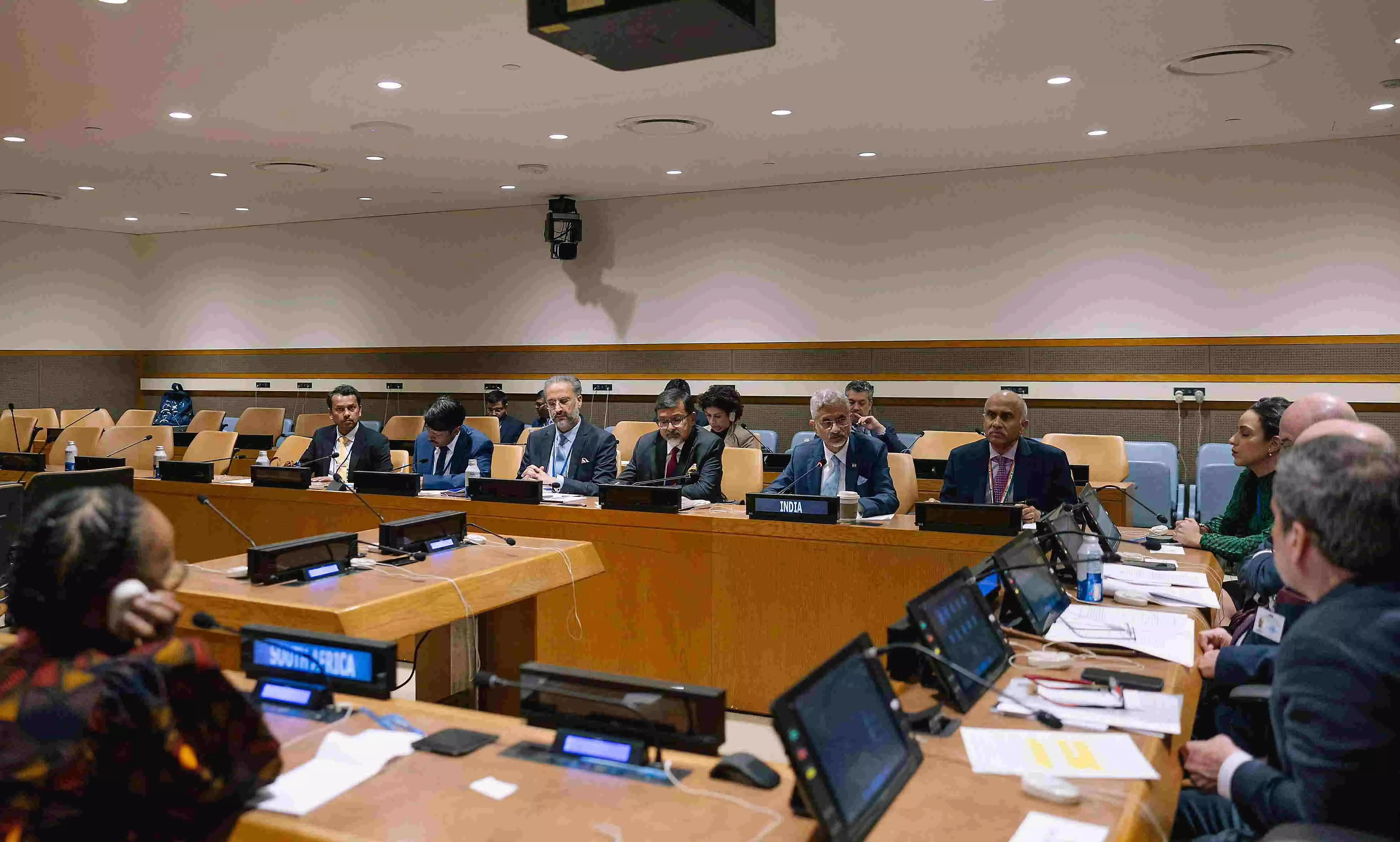IBSA voices serious concern over discriminatory & coercive trade measures

New York: In a thinly veiled criticism of Washington's tariff tussle, India, Brazil and South Africa have expressed serious concern over imposition of unilateral tariff and other coercive measures as they risk destabilising world markets and trigger instability.
At a meeting held under the framework of IBSA (India, Brazil, South Africa), the three countries held that the "discriminatory" measures are "inconsistent" with the norms of the World Trade Organisation (WTO).
It was attended by External Affairs Minister S Jaishankar, Brazilian Foreign Minister Mauro Vieira and South African minister Sindisiwe Chikunga.
The IBSA also made a strong call for the transformative reform of the UN Security Council, Jaishankar said.
The IBSA emphasised the need for nurturing a fair, balanced and mutually beneficial global trading system and reaffirmed its commitment to strengthen the centrality of the rules-based, transparent, non-discriminatory, fair and inclusive multilateral trading system, according to an IBSA readout.
Last month, the US slapped 50 per cent tariffs on India and Brazil.
The ministers emphasized that fair, balanced and mutually beneficial trade must be nurtured and protected," the IBSA said in a statement.
"They (the ministers) reaffirmed their commitment to strengthen the centrality of the rules-based, transparent, non-discriminatory, fair, equitable, open, and inclusive multilateral trading system, with the World Trade Organization (WTO) at its core and its role in promoting predictability, stability, legal certainty and a level playing field for international trade," it said.
The ministers expressed "serious concern over the imposition of unilateral tariff and other discriminatory and protectionist measures, particularly measures used as a means of coercion, noting that such actions are inconsistent with the WTO and risk undermining the rules-based multilateral trading system as well as destabilising world markets fostering greater fragmentation and instability," it said.
The three nations said they remained committed to working constructively to the reform and strengthening of the multilateral trading system.
"The ministers noted with regret that the commitment made at the 13th WTO ministerial conference to have a fully and well-functioning dispute settlement system by December 2024 has not been fulfilled," according to the statement.
The ministers emphasised that they remain committed to the urgent restoration of an accessible, effective, fully-functioning, two-tier binding WTO dispute settlement system.
Interestingly, the three nations also highlighted the need for agricultural trade to be free from protectionist unilateral measures contrary to WTO rules.
"The members underscored that transparent, open, reliable, non-discriminatory, and uninterrupted international trade in agriculture and its inputs is one of the important avenues to address the global food security crisis," the statement noted.
"The ministers also reaffirmed their commitment to strengthening even further agricultural cooperation among IBSA, including within multilateral organisations," it said.



